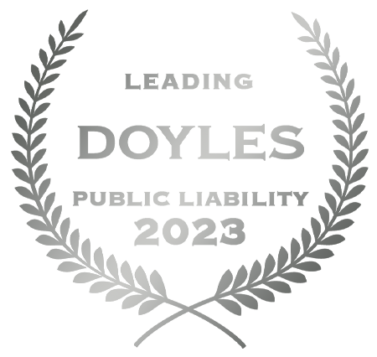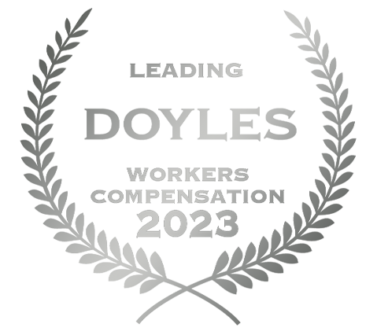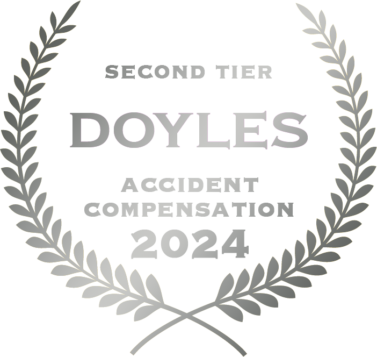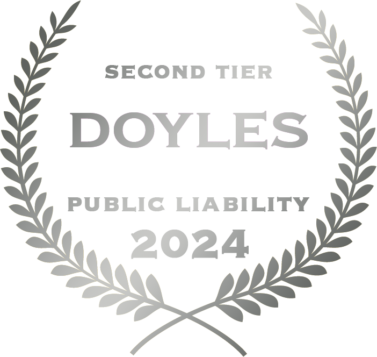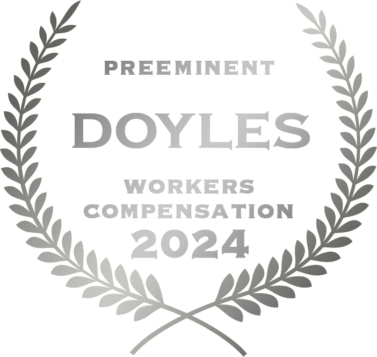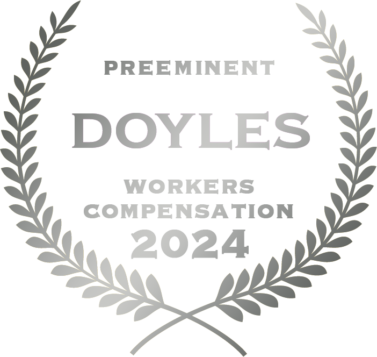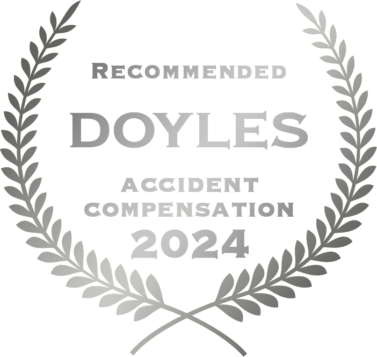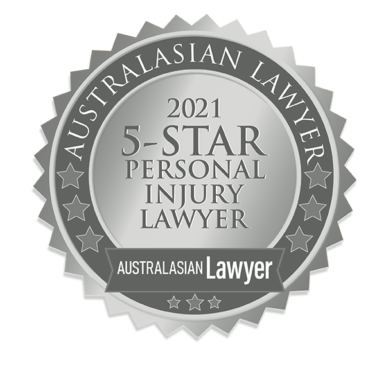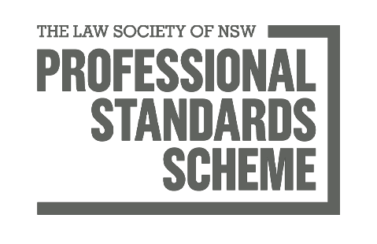
How CTP Claim Lawyers can Check and Dispute a CTP Insurer’s Decision.
If you’ve lodged a CTP claim and had benefits or lump sums denied by the insurer, our CTP claim lawyers can help you dispute the decision. And in many cases our fees are paid by the insurer.
In this article we explain everything you need to know about checking your entitlements and disputing an insurer’s decision on your CTP claim, how our CTP claim lawyers can help you, and when you can get the insurer to pay for your lawyer.

Understanding the dispute process.
There are two steps you can take to dispute an insurer’s decision on your CTP claim.
| Steps | Process |
|---|---|
| Step 1 – Request an Insurer Internal Review (IIR). | If you request an IIR, it means you disagree with the insurer’s decision to reduce or cut off your benefits and you’re asking them to review your case file again. The letter you receive from the insurer will outline their reasons for cutting you off. You need to address each one of these reasons in your request for an IIR. |
| Step 2 – Escalate the dispute to the Personal Injury Commission (PIC). | In most circumstances you need to request an IIR before you can take your matter to the PIC. The PIC will assist in one of two ways:
|
Step-by-step guide to checking and disputing a CTP insurer’s decision.
Our CTP lawyers have extensive experience disputing insurers’ decisions, and we win over 99% of our cases. Here’s our step-by-step guide.
1. Check your medical, treatment, and care payments.
Here’s a quick summary of entitlements, to help you determine if you’re getting what you should be:
| Injury/ months since accident | Medical, treatment and care expense entitlements |
|---|---|
| All injuries, first twelve months. |
|
| Threshold (minor) injuries, beyond six months. |
|
| Above-threshold injuries, beyond six months. |
|
| All injuries, beyond 24 months. |
|
2. Check your income support payments.
Here’s a summary of your income support payment entitlements:
| Injury/months since accident | Income support payment entitlement |
|---|---|
| Weeks 1-13 |
|
| Weeks 14-52 (i.e. up to twelve months) |
|
| Threshold injuries, beyond twelve months |
|
| Above-threshold injuries, beyond six months |
|
| All injuries, beyond 24 months |
|
To assess your pre-accident income, the insurer will ask you for evidence of your earnings, like twelve months’ pay slips. Then the insurer will estimate your income by taking an average.
Our experience with CTP claims has shown there are several ways this could be unfair to you. Here are two examples:
- If you took unpaid leave during the last year, your pay slips wouldn’t show this, and your income assessment based on a 12-month average would be too low.
- If you changed jobs or received a recent promotion and your new job paid a much higher income than your old job, then your 12-month average would be lower than your actual pre-accident earnings, which would be unfair to you.
You can request information from the insurer about how they calculated your income. Once you get their reply, if you think they’ve got it wrong you can lodge a dispute to get it corrected.
3. Lodging a dispute.
If you’ve checked your payments and you believe they’re wrong, or you’re being denied “reasonable and necessary treatment”, you can lodge a dispute with the insurer.
Our CTP claim lawyers can raise this dispute on your behalf, and for most disputes SIRA allows you to engage our lawyer at no cost to you. Call us on 13 15 15 to find out if this applies to your claim.
The following table lists the steps you’ll need to go through to dispute your payments. Please note that if you’ve engaged one of our CTP claim lawyers, they’ll handle the whole process on your behalf.
In most cases, the first step in the dispute process is to request an “Insurer Internal Review”, or IIR. After the insurer has provided you with their IIR determination, if you’re unhappy with the outcome, we can escalate the dispute to the Personal Injury Commission (PIC).
| Steps | Helpful information |
|---|---|
| Step 1 – Insurer Internal Review (IIR) |
|
| Step 2 – Personal Injury Commission (PIC) |
|
4. Getting a CTP claim lawyer to help with lodging a dispute on time.
Strict time limits apply to IIR and Personal Injury Commission (PIC) dispute applications so it’s best to get legal advice as quickly as possible.
Remember, SIRA generally allows you to engage a lawyer to represent you at PIC at no cost to you. Call us on 13 15 15 and speak directly to a CTP claim lawyer to understand the options available to you. This is a free service.
The most common disputes are:
- Threshold/above-threshold injury definition
- Treatment expenses denied
- Travel expenses to see treatment provider denied
Threshold/above threshold injury definition.
This dispute arises if your injuries have been assessed as threshold (minor) injuries, but you believe they should have been assessed as above threshold. This could mean that your benefits have been cut off before you’re fully recovered or able to return to work, leaving you unable to support yourself financially or get the treatment and care that you need.
It would also mean you’re unable to make a claim for a lump sum to compensate you for future lost earnings or non-economic loss.
Our CTP lawyers have a strong track record in winning disputes over threshold/above-threshold definitions on behalf of our clients.
Here are some tips to follow if you’re requesting an IIR on the basis of threshold/above-threshold injury definition:
- You’ll need a certificate of capacity from a GP to support your position.
- It’s very important to make sure all your injuries are noted in your certificate of capacity.
- Include any new injuries, psychological injuries, side effects from medication, or pre-existing conditions that have worsened.
- Remember, even though most of your injuries may be classified as threshold injuries, you only need to have one that falls into the above-threshold category to successfully dispute the insurer’s position.
Treatment expenses denied.
If treatment expenses are denied by the insurer, it will usually be on the basis that the treatment is not “reasonable and necessary”. This is a subjective definition, open to interpretation, and even medical professionals may disagree on whether your treatment is reasonable and necessary.
What you need to understand is that the insurers employ medical and legal experts in this area, who have dealt with many claims and argued their opinions in many disputes. But don’t let that stop you from disputing the insurer’s decision – with one of our CTP lawyers on your side, you’ll give yourself the best possible chance of success.
Travel expenses to see treatment provider denied.
You may find yourself in a position where the insurer has refused to pay for travel expenses to and from treatment providers. This refusal is usually made on the basis that the insurer believes you’re physically able to travel on your own, by public transport, or by driving. However, if your injuries are making it difficult for you to travel, you can dispute their decision.
Here are some tips to follow if you’re disputing an insurer’s decision to deny travel expenses:
- You’ll need to show medical evidence that supports your position.
- For example, a medical report that shows why you can’t drive, or why it’s hard for you to use public transport.
- If you plan to lodge a dispute, you’ll have a much better chance of success with legal experts on your side.
- SIRA does allow you to engage a lawyer for what’s known as a “paid dispute”, and the lawyer’s fees are covered by the insurer.
- If you’ve had travel expenses denied, call us on 13 15 15 for free legal advice on where you stand.
When you can get a CTP claim lawyer to help at no cost to you.
There are two types of disputes – paid disputes and unpaid disputes.
- A paid dispute is a dispute that a car accident lawyer can charge for, and the fees are fixed.
- Your lawyer will generally earn $1,919* for the dispute. There are legislative restrictions and maximum limits that apply to each claim.
- You won’t have to pay anything to have a lawyer assist you with a paid dispute – these fees are paid by the insurer.
- If a lawyer helps you with an unpaid dispute, they must do it free of charge.
*As of November 2023
At Law Partners we have a team of specialist car accident lawyers based in Sydney who understand that every situation is unique but have experience with claims just like yours. We win over 99% of our cases and can help you with every step of the CTP claims process. Call us on 13 15 15 for free advice about your claim and to find out how we can help you.
Related articles
Do I have a case?
Our senior lawyers will assess your case for free.


